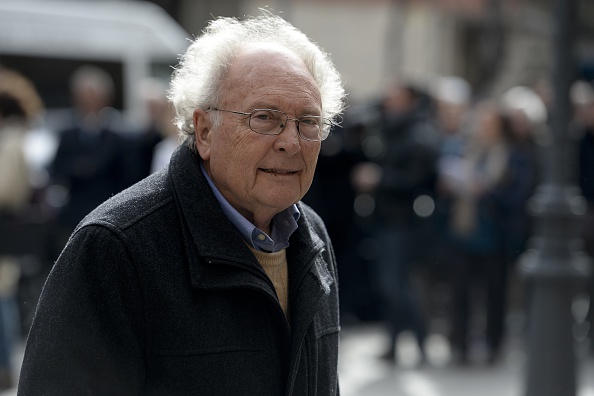“In Spain, We Need Another Eduard Punset.”
That was the headline today by El País, Spain’s top newspaper when announcing the death of Eduard Punset at 82. In English-speaking countries, Punset’s name may be unknown, but in Spain, he was seen as the Spanish version of Carl Sagan. His iconic show, Redes, was a portal to the vast world of science. Punset, with his Einstein-like hair, endless curiosity, and charm for the camera, was one of the greatest popularizers of science in the Spanish-speaking world.
The Legacy of Eduard Punset
From Politics to Science Popularizer
Punset’s introduction to the sciences wasn’t a primer. The Catalan-born lawyer was an expert in political affairs and in economics. He oversaw the Latin American section of the British magazine, The Economist, and an economy writer for the BBC. Punset was part of the Spanish government in the late 1980s and early ’90s. Moreover, at one point, he was part of the European Parliament, tasked for the recovery of Poland after the fall of the Berlin wall.
But, Punset’s larger-than-life figure would come in the form of television, when in 1996, his show, Redes – a show that highlighted the frontiers of science – debuted in Spanish television. As Guillermo Alonso of El País points out:
“There was something scarce in him on television like the Spanish, that have always played at prudence and secrecy in its male presenters: a style difficult to describe and moderately easy to imitate. That kind of guy with the messy gray hair, a tone of voice that was low and soft, and a marked Catalan accent, had something that left spectators nailed to their television, even if it was a program aimed at minorities like Redes.”
The Birth of Redes
Redes wasn’t highly popular on national television, but it would make Punset an icon and a huge popularizer of the sciences. As Alonso points out, nobody watched his show – it barely registered 200,000 viewers – but almost everybody knew who the presenter was.
It wasn’t strange to find gigantic and almost pop-like icons of science being interviewed by Punset. The evolutionary biologist Richard Dawkins, the neuroscience pioneer Michael Gazzaniga, and even Dorion Sagan (the son of Carl Sagan) were interviewed by Punset in Redes. What made the show spectacular was the initiative to have no boundaries on topics. One show might be on evolution, while another might be on the chemistry of love and its biological roots.
Punset would later, for many comedians and YouTubers, become a parody, which would catapult him even further; he even dabbled in some pseudoscience. He would dub his own voice while speaking in English. Moreover, his passive posture accompanied by the child-like curiosity with which he would treat his guest was infectious. Even in places like the small island where I’m from in Puerto Rico, Punset became synonymous with the exploration of science. What made people appreciate him, even more, was his limitless curiosity of topics and his soft touch on explaining with his guess that show’s theme.
Juan Cruz of El País wrote today on Punset’s uniqueness:
“Through these channels, this clueless Chamberí [Punset] who came from Barcelona played successfully on the key of science. What he did was great, in the strict sense. Well, with the base of common sense and his genius, he dedicated himself (in Redes, above all) to questioning the future as if he were a scholar. That attitude (of Mr. Chance) accompanied him with the knowledge to be calm: the confused Chamberí (of Barcelona) did not want to be a wise person, nor to seem it: he was, simply, a citizen who wants to know more about life. And to know about life, he had to take a step towards the future.”
Last Word on Eduard Punset
The beauty of Punset was that he was just like you and me; asking for answers on the biggest mysteries of life. What made his work so gratifying was that he had in front of him giants of the sciences, whose works influenced the world and were thought to be mythical creatures of the English-speaking side. Although Punset had equally influential scientists from Spain and Latin America, as in the cases of Alvaro Pascual-Leone and Joaquim Fuster, seeing towering figures like the late Oliver Sacks or Stephen Jay Gould on a Spanish-speaking program was of immense satisfaction. We’ll be forever indebted to the brilliant curiosity of Punset.
*Translations assisted by Annais Lopez Sanchez*

